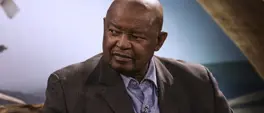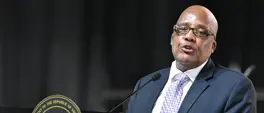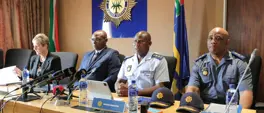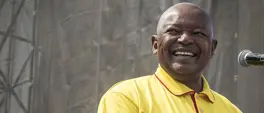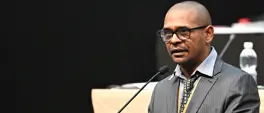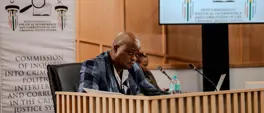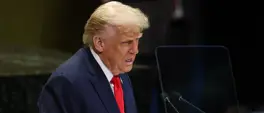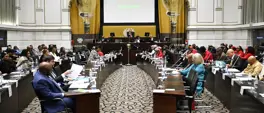CHARLES MATSEKE | G20 Johannesburg: The day Africa stopped asking for permission
Charles Matseke
24 November 2025 | 10:49" The G20 is bigger than Washington. The boycott did not freeze the summit; it liberated it."
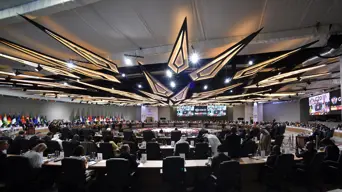
The G20 Leaders’ Summit enters its second day on Sunday, 23 November 2025. Picture: GCIS.
In order for a full-circle to be complete, history has a way of looping back to its unfinished revolutions.
In 1955, leaders from newly independent Asian and African states gathered in Bandung to declare that imperialism old or new would no longer dictate their future.
That spirit was reborn in Johannesburg in 2025 when the G20 met on African soil for the first time in global history.
And just like Bandung, the Johannesburg summit was met with coordinated hostility from Western powers terrified of the Global South developing a voice loud enough to be heard. But unlike 1955, this time the world didn’t just listen, it followed suit.
The G20 in South Africa was not merely a diplomatic event it was a political earthquake and Washington felt the tremor the most.
Instead of arriving as a global power engaging in good faith multilateralism, the United States arrived with nothing. Not a president, not a secretary of state or even an ambassador. Washington boycotted the summit over a lie so stale it should insult even the laziest of propagandists: the constructed fantasy of “white genocide” in South Africa.
Let’s call it what it is: this is a weaponised deceit pushed by a coalition of US right-wing media warriors, South African ultra-conservative lobbies (AfriForum, we see you) and Orania’s soft-spoken supremacist networks.
This was not foreign policy it was political theatre aimed at Trump’s domestic base. As I wrote earlier in “Trump’s performance politics and the cost to South Africa”, the US increasingly “projects its domestic insecurities outward, conscripting entire nations into its culture wars.”
South Africa, once again, had been drafted without consent into America’s internal theatre of grievance. And yet, for all the noise, the boycott accomplished nothing.
For the first time in G20 history, the summit adopted its leaders’ declaration on the opening day. Let that sink in.
A forum famous for deadlocked negotiations, walkouts, watered-down statements, and geopolitical tug-of-war suddenly produced a clean, full consensus within hours.
Why?
Because the US wasn’t in the room to veto, dilute, or derail it.
Nineteen members plus invited African and Global South states accepted South Africa’ agenda without hesitation:
• structural financial reform
• debt justice
• climate-transition financing
• industrialisation for developing economies
• political solutions in DRC, Sudan, Ukraine, and Palestine
The world effectively said: “Let’s agree now before the Americans show up to spoil it.” That is more than symbolism. That is global power recalibrating.
For decades, South Africa has been the polite student in the Western diplomatic classroom well-behaved, deferential, always careful not to speak out of turn.
But not this time. When the White House complained that South Africa had adopted the declaration “despite US objections,” GCIS head William Baloyi fired back with one of the most important diplomatic statements of the decade: “They are not talking to South Africa. They are talking to the world.”
Minister Khumbudzo Ntshavheni went further, reminding Washington that the G20 is not an extension of US foreign policy, nor is South Africa obliged to validate American insecurity by pretending its boycott mattered.
In one stroke, Pretoria rejected the colonial script that says African states must await Western approval before acting. This wasn’t anti-Americanism. This was adulthood.
Let’s be honest: the “white genocide” narrative would not have survived if it weren’t being fertilised by South Africa’s own right-wing ecosystem. AfriForum’s political theology, as I argued in “AfriForum’s memory of Charlie Kirk,” is rooted in a racialised messianism that sees salvation not in democracy but in the arms of American conservatism.
These groups operate as local franchises of US extremism, laundering American racial politics into South African discourse. Their narrative is simple and poisonous: “South Africa is a failed, violent, anti-white state; only American intervention can save it.”
This is political parasitism masquerading as patriotism which fed directly into Washington’s boycott logic. But at the G20, the world looked around, saw South Africa for what it is, not perfect, but legitimate, functioning, sovereign and recognised the propaganda for the sham it was.
No moment made South Africans mourn the late Tshidi Madia more than this one.
She went into the belly of the beast, American right-wing media and stood her ground with facts, composure, and dignity. She defended South Africa, not with nationalist sentiment, but with evidence.
Had she been alive, Tshidi would have shredded the “white genocide” lie with the same calm ferocity she displayed abroad.
She would have explained why Africa deserves to host global summits without being subjected to racial hysteria from across the Atlantic. Her absence is felt. Her professional rigor and thoroughness remains a guide.
Bonang Mohale summed it up well in the absence of Tshidi: “The G20 is bigger than Trump.”
But Johannesburg proved something even larger: The G20 is bigger than Washington. The boycott did not freeze the summit; it liberated it.
Without the US veto logic, the G20 operated like a genuinely multilateral institution, purposeful, decisive, capable of articulating a future where justice, redistribution, and climate responsibility are notideological threats but global imperatives.
This was not just a diplomatic success; it was a psychological emancipation Steve Biko advised Africans to sought after.
When the US sent a chargé d’affaires to pick up the G20 presidency, it was meant as a final insult, a petty gesture meant to downplay the summit’s historic significance.
South Africa responded perfectly: a junior official from Dirco would hand over the gavel. No fanfare, no deference and no apology.
This was diplomacy’s version of “Try again. We’re not your colony.”
The Johannesburg declaration revealed something Western capitals have long tried to suppress: Africa’s priorities are global priorities.
Debt justice, sustainable development financing, climate vulnerability, and political solutions in conflict zones are not “developing world issues” they are the central fault lines of the 21st century.
Europe understood this, France and the UK pushed their EU counterparts to support South Africa’s declaration. This wasn’t charity, it was recognition that the political centre of gravity is shifting.
The world is finally listening because the world finally needs what the Global South has to offer: legitimacy, demographic power, energy transition minerals, and new moral vocabularies for global governance.
The US boycotted a summit, Africa delivered it. Washington sulked, Pretoria led. American misinformation raged, the world shrugged.
This was not a diplomatic footnote, it was a paradigm shift. On that day in Johannesburg, Africa stopped asking for permission. And the world quietly, perhaps reluctantly realised it could move without the hegemon.
The G20 in South Africa was not simply hosted. It was rewritten and the next chapter will not be authored in Washington.
Charles Matseke (MPhil in Politics and International Relations) is a researcher and writer with a keen interest in contemporary political dynamics. His research focuses on electoral politics, foreign policy analysis, and international relations, with a particular emphasis on the Global South and Africa's role in global affairs.
Get the whole picture 💡
Take a look at the topic timeline for all related articles.
Trending News
More in Opinion
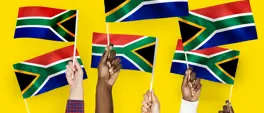
3 March 2026 11:40
Who belongs in South Africa? UCT philosopher weighs in on identity and ownership

2 March 2026 11:05
TLALI TLALI |Mandate, money and accountability - What the government website debate really reveals

27 February 2026 11:00
JAMIL F. KHAN | Human rights last on the list for global leadership agenda
